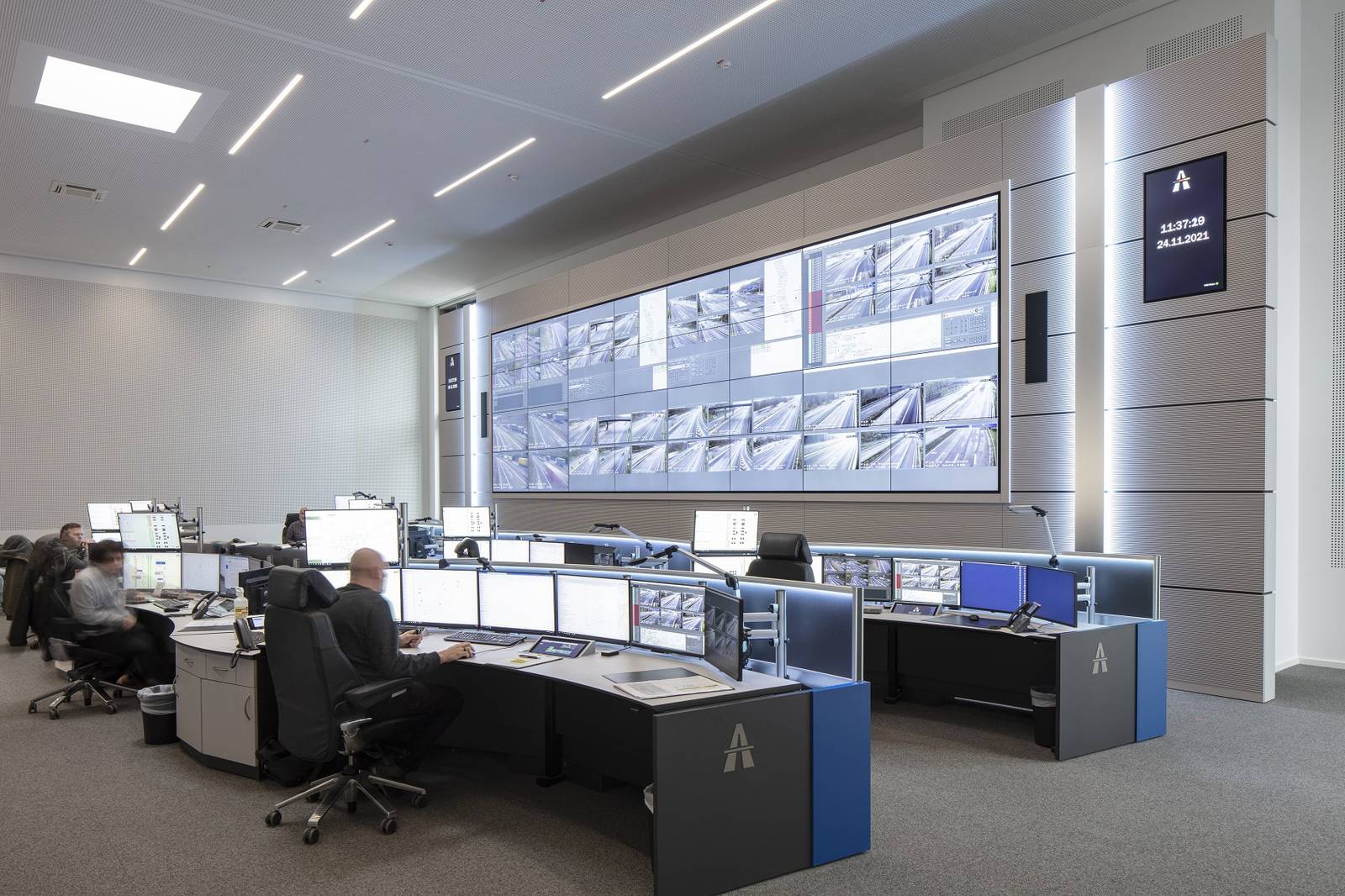Svenstol at Autobahn GmbH
On 1 January 2021, Autobahn GmbH, Germany’s federal motorway company, assumed responsibility for the planning, construction and operation of all 13,200 kilometres of motorway in Germany. It maintains ten regional branches, 41 field offices and 189 motorway maintenance depots with more than 13,000 employees. Whatever we see when driving on the motorway – from the roads themselves, the service areas, car parks, road works, the winter road maintenance service or the green waste – everything is planned and managed by Autobahn GmbH.
The traffic centres are responsible for ensuring that the flow of traffic is as trouble- and congestion-free as possible – which is no easy task given the enormous volume of traffic and 600 construction sites alone on a stretch of almost 10% of the 13,200 kilometres (2021). With the help of the traffic control facilities, the control centres help to improve safety, ease congestion and reduce climate-damaging emissions.
One of these centres is the new traffic centre in Leverkusen. Here, 21 operators work in three shifts around the clock to manage traffic on Germany’s densest and busiest motorway network – the Rhine-Ruhr metropolitan region in North Rhine-Westphalia. The operators keep an eye on the traffic situation in North Rhine-Westphalia on a total of almost 100 monitors. At the eight workstations, current digital data – from camera images and traffic information from measurement loops, to weather reports and forecasts – is collected and immediately analysed. If there’s a bottleneck somewhere, modern traffic control technology, communication of traffic information or – where possible – opening of the hard shoulder to cars is used to counteract it.
As is the case with air traffic controllers, the work demands complete concentration from the operators at all times, because mistakes here can have serious, immediate consequences too. So we are delighted that Autobahn GmbH has opted for Svenstol’s 24 h chairs, which promote active sitting.






